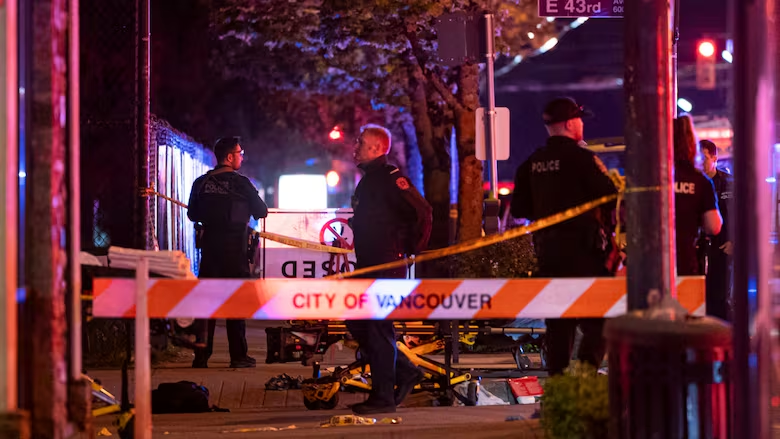On Saturday evening, a black SUV ploughed into a dense crowd gathered to celebrate Lapu-Lapu Day on Vancouver’s busy Fraser Street, killing eleven people and injuring more than twenty others, some of them critically. Witnesses describe a sudden, terrifying scene: families with young children fleeing as the vehicle mounted the curb, striking stalls and performers in its path.
The festival, held each spring to honour the Filipino hero who resisted colonial forces in the 16th century, had drawn thousands of community members and their guests. Attendees came for traditional dances, live music and street food—none expecting the joyous gathering to end in tragedy just after 8 p.m.
Police quickly arrested 30-year-old Kai-Ji Adam Lo at the scene. Investigators say Lo has a documented history of mental-health challenges and that there is no evidence of political or ideological motivation behind the attack. He now faces eight counts of second-degree murder and is due in court later today.
In Ottawa, Prime Minister Mark Carney immediately canceled planned campaign events in Calgary and Richmond and addressed the nation in a solemn live broadcast. He offered his condolences to grieving families, affirmed that there is “no active threat” to public safety, and pledged federal resources to support first responders and trauma services in Vancouver.
Conservative Leader Pierre Poilievre began his Sunday by attending a Filipino church service in Toronto, joining congregants in prayer and observing a moment of silence. At a subsequent rally in Oakville, he condemned the “senseless violence” and urged Canadians to stand together, saying, “We cannot allow terror to fracture our communities or our compassion.”
NDP Leader Jagmeet Singh, who had left the festival site mere minutes before the vehicle struck, appeared visibly shaken when he spoke to reporters. He canceled his remaining campaign stops and traveled back to Vancouver to attend a Tagalog-language mass. “Tonight, we honour the lives taken by embracing unity over fear,” he said, vowing to bolster mental-health support across the country.
The shootings brought an abrupt pause to the frenetic final-day campaign trail. Large rallies were replaced by small gatherings and private strategy sessions as party strategists recalibrated their messages around public safety, mental-health funding and inclusive community support. Pundits suggest that voter sentiment in diverse urban ridings may shift in response to leaders’ handling of the crisis.
Across Vancouver, spontaneous candlelight vigils sprang up along Fraser Street. Neighbours left flowers and lanterns near the festival site while community volunteers organized grief-counseling booths and hot-meal stations for first responders and stranded festival-goers. Mayor Ken Sim ordered flags lowered to half-mast citywide and declared Monday a municipal day of reflection.
As Canada prepares to vote tomorrow, this act of violence has heightened public debate on mental-health services, street-safety measures and the responsibilities of political leaders in moments of national sorrow. The next government will face scrutiny not only on economic and policy platforms but on its capacity to heal, protect and unite a diverse population in the face of adversity.



